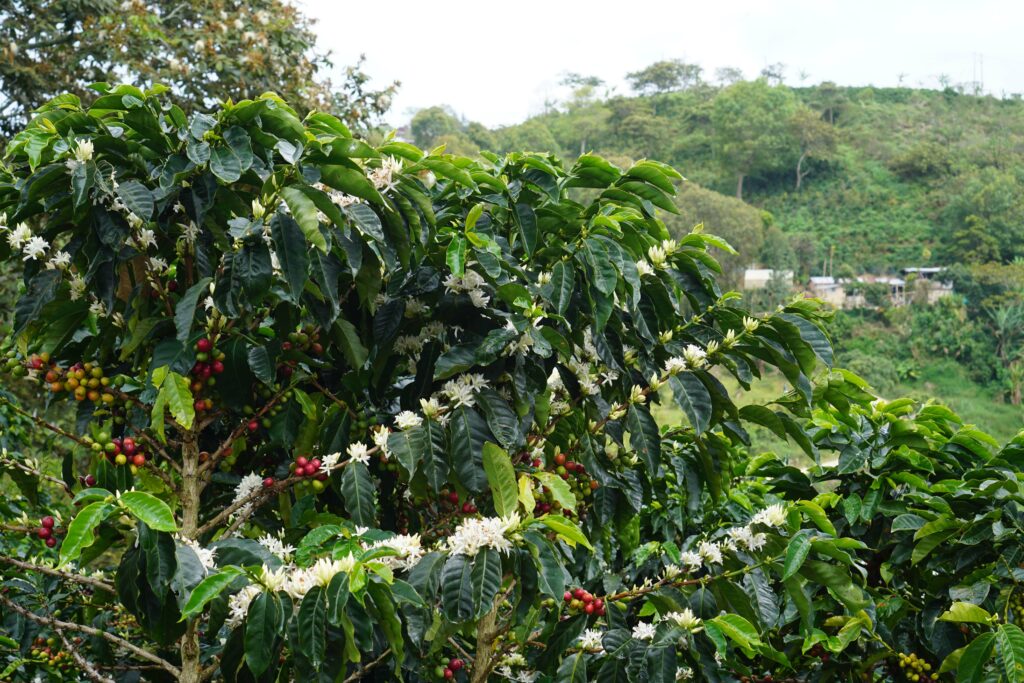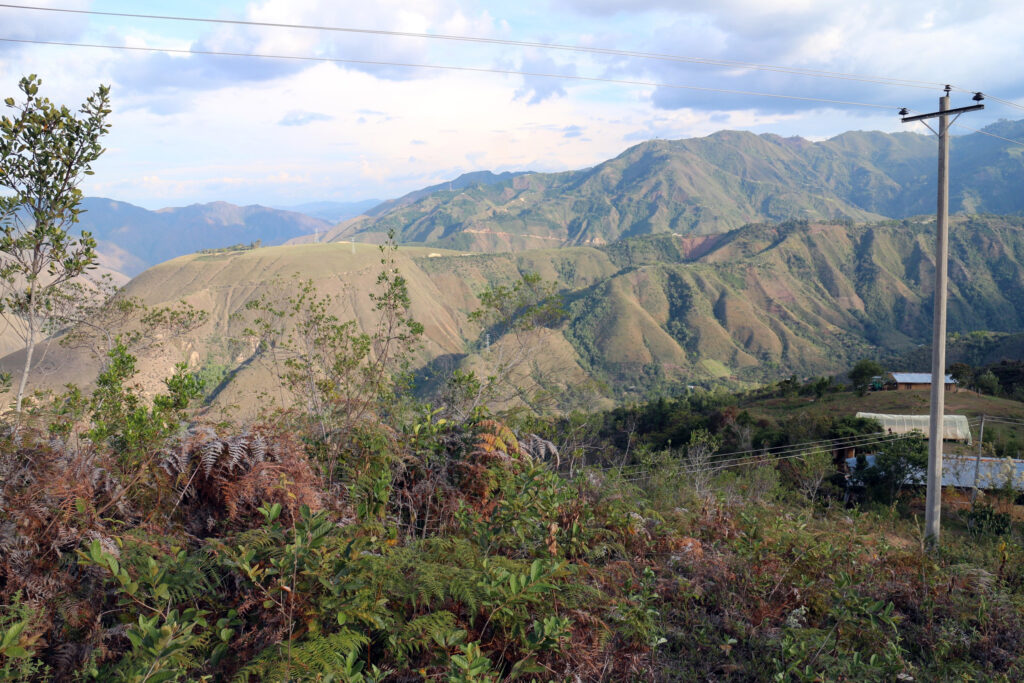Colombia Update

Coffee blossoming and fruiting in Huila, Colombia[/caption]
As political unrest continues to sweep through Colombia, coffee producers and exporters are struggling to meet deadlines and fulfill contracts. With the current turmoil, the movement of coffee is threatened as producers are underway with harvest in some key regions.
As the third leading producer of coffee, Colombia is responsible for a significant portion of global coffee production. Since the 1700s, after the introduction of coffee by Spanish Jesuits, Colombia has maintained a strong presence within the coffee community. With varying microclimates throughout the country, there are over twenty coffee-producing departments with Cauca, Huila, Antioquia, and Nariño being some of the most famous. Currently, Cauca and Nariño are in the midst of the main crop harvest as Huila is underway with their fly crop. Production was so expansive, that the federal government created the National Federation of Coffee Growers (FNC) to support coffee producers. Yet, regardless of coffee’s power in the South American continent, the political unrest is bearing heavy weight in all reaches.
For nearly a month, protests and blockades have flooded the streets. The Colombian government has struggled to understand the best plan of action, due to the numerous leaders and disorganization of events. Initially, protests were sparked by the tax reform initiated by the government to make up for the 2020 losses due to COVID (Colombian GDP dropped by 6.8% in 2020). The proposed reform would have expanded value-added taxes on certain products and basic goods whilst removing a select number of tax exemptions – pushing middle-class earners to a higher tax bracket. Labor unions and federations organized a nationwide peaceful protest to respond in late April. This resulted in the proposed tax reform being withdrawn the following week, but protests continued as a response to widespread inequality amongst various other government issues. Protests in Cali have been violent and disruptive with rupturing chaos causing harm to businesses and homes.
Blockades and looming threats from illegal groups are preventing the movement of cargo, and thus the movement of coffee. Factories are being forced to shutdown due to failed shipments leaving businesses without the necessary resources to continue production. Slowly, Colombia is shutting down, the protests and riots gradually suffocating the usually bustling country.
Colombia is currently in the midst of harvesting, processing, and transporting coffee. The road blockades are making the transport of coffee more difficult or nearly impossible. Ports are closed and the movement of coffee is at a standstill as the government attempts to handle the situation. All of which is prevailing despite the recent high prices of 1.4 million to 1.5 million pesos per carga (125 kgs of parchment) are nearly double compared to what they were in 2005.
Farmers are not being paid because of this issue – without the movement of coffee, producers cannot fulfill contracts. Exporters are currently stockpiling the main harvests from Cauca, Huila, and Nariño.
This turmoil is placing a stress on the global trade of Colombian coffees. Shipments have already been missed, which will lead to back log, congestion, and extreme future delays.

View of mountainside road from Agua Blanca in Cauca
Our exporting partners at Pergamino in Medellin are struggling with moving goods and fulfilling shipments. Parchment remains in drying areas, unable to be moved to the mill. Pergamino manager Pedro Miguel Echavarría mentions that all levels of production are frozen – unable to progress or move forward due to the blockades. Coffee has not moved since the 28th of April and continues to remain in parchment or waiting at the mill. Mercanta shipments to Singapore will be impacted as the June shipment will be missed and difficult to rebook in the future once the ports re-open. Inza is currently blocked by indigenous peoples protesting and threats from organized groups to prevent the movement of cargo to La Plata, the nearest town where destructive acts have harmed public buildings. Hamburg, Dubai, Japan, and UK coffees safely departed from the port prior to the unrest.
Throughout the world, coffee consumers and traders are keeping Colombia in our thoughts. With coffee being a major commodity for Colombia – it is essential the product leaves the country to not only fulfill contracts, but to ensure producers are receiving payment for what they have produced.
Please expect delays for Colombia shipments in the future.